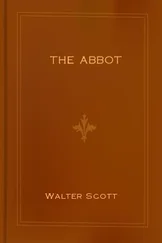Walter Scott - The Betrothed
Здесь есть возможность читать онлайн «Walter Scott - The Betrothed» весь текст электронной книги совершенно бесплатно (целиком полную версию без сокращений). В некоторых случаях можно слушать аудио, скачать через торрент в формате fb2 и присутствует краткое содержание. Год выпуска: 2004, Жанр: Старинная литература, на английском языке. Описание произведения, (предисловие) а так же отзывы посетителей доступны на портале библиотеки ЛибКат.
- Название:The Betrothed
- Автор:
- Жанр:
- Год:2004
- ISBN:нет данных
- Рейтинг книги:3 / 5. Голосов: 1
-
Избранное:Добавить в избранное
- Отзывы:
-
Ваша оценка:
- 60
- 1
- 2
- 3
- 4
- 5
The Betrothed: краткое содержание, описание и аннотация
Предлагаем к чтению аннотацию, описание, краткое содержание или предисловие (зависит от того, что написал сам автор книги «The Betrothed»). Если вы не нашли необходимую информацию о книге — напишите в комментариях, мы постараемся отыскать её.
The Betrothed — читать онлайн бесплатно полную книгу (весь текст) целиком
Ниже представлен текст книги, разбитый по страницам. Система сохранения места последней прочитанной страницы, позволяет с удобством читать онлайн бесплатно книгу «The Betrothed», без необходимости каждый раз заново искать на чём Вы остановились. Поставьте закладку, и сможете в любой момент перейти на страницу, на которой закончили чтение.
Интервал:
Закладка:
The Constable, no less joyful, though perhaps less able to perceive an especial providence in his nephew's recovery, expressed his gratitude to the messenger of the good tidings, by throwing him his purse.
"I thank you, noble lord," said the man; "but if I stoop to pick up this taste of your bounty, it is only to restore it again to the donor."
"How now, sir?" said the Constable, "methinks thy coat seems not so well lined as needs make thee spurn at such a guerdon."
"He that designs to catch larks, my lord," replied the messenger, "must not close his net upon sparrows—I have a greater boon to ask of your lordship, and therefore I decline your present gratuity."
"A greater boon, ha!" said the Constable,—"I am no knight-errant, to bind myself by promise to grant it ere I know its import; but do thou come to my pavilion to-morrow, and thou wilt not find me unwilling to do what is reason."
So saying, he took leave of the Prelate, and returned homeward, failing not to visit his nephew's lodging as he passed, where he received the same pleasant assurances which had been communicated by the messenger of the particoloured mantle.
CHAPTER THE NINETEENTH.
He was a minstrel—in his mood
Was wisdom mix'd with folly;
A tame companion to the good,
But wild and fierce among the rude,
And jovial with the jolly.
The events of the preceding day had been of a nature so interesting, and latterly so harassing, that the Constable felt weary as after a severely contested battle-field, and slept soundly until the earliest beams of dawn saluted him through the opening of the tent. It was then that, with a mingled feeling of pain and satisfaction, he began to review the change which had taken place in his condition since the preceding morning. He had then risen an ardent bridegroom, anxious to find favour in the eyes of his fair bride, and scrupulous about his dress and appointments, as if he had been as young in years as in hopes and wishes. This was over, and he had now before him the painful task of leaving his betrothed for a term of years, even before wedlock had united them indissolubly, and of reflecting that she was exposed to all the dangers which assail female constancy in a situation thus critical. When the immediate anxiety for his nephew was removed, he was tempted to think that he had been something hasty in listening to the arguments of the Archbishop, and in believing that Damian's death or recovery depended upon his own accomplishing, to the letter, and without delay, his vow for the Holy Land. "How many princes and kings," he thought to himself, "have assumed the Cross, and delayed or renounced it, yet lived and died in wealth and honour, without sustaining such a visitation as that with which Baldwin threatened me; and in what case or particular did such men deserve more indulgence than I? But the die is now cast, and it signifies little to inquire whether my obedience to the mandates of the Church has saved the life of my nephew, or whether I have not fallen, as laymen are wont to fall, whenever there is an encounter of wits betwixt them and those of the spirituality. I would to God it may prove otherwise, since, girding on my sword as Heaven's champion, I might the better expect Heaven's protection for her whom I must unhappily leave behind me."
As these reflections passed through his mind, he heard the warders at the entrance of his tent challenge some one whose footsteps were heard approaching it. The person stopped on their challenge, and presently after was heard the sound of a rote, (a small species of lute,) the strings of which were managed by means of a small wheel. After a short prelude, a manly voice, of good compass, sung verses, which, translated into modern language, might run nearly thus:
I.
"Soldier, wake—the day is peeping:,
Honour ne'er was won in sleeping,
Never when the sunbeams still
Lay unreflected on the hill:
'Tis when they are glinted back
From axe and armour, spear and jack,
That they promise future story
Many a page of deathless glory.
Shields that are the foe man's terror,
Ever are the morning's mirror.
II.
"Arm and up—the morning beam
Hath call'd the rustic to his team,
Hath call'd the falc'ner to the lake,
Hath call'd the huntsman to the brake;
The early student ponders o'er
His dusty tomes of ancient lore.
Soldier, wake—thy harvest, fame;
Thy study, conquest; war, thy game.
Shield, that would be foeman's terror,
Still should gleam the morning's mirror.
III.
"Poor hire repays the rustic's pain;
More paltry still the sportsman's gain;
Vainest of all, the student's theme
End in gome metaphysic dream.
Yet each is up, and each has toil'd
Since first the peep of dawn has smiled;
And each is eagerer in his aim
Than he who barters life for fame.
Up, up, and arm thee, son of terror!
Be thy bright shield the morning's mirror."
When the song was finished, the Constable heard some talking without, and presently Philip Guarine entered the pavilion to tell that a person, come hither as he said by the Constable's appointment, waited permission to speak with him.
"By my appointment?" said De Lacy; "admit him immediately."
The messenger of the preceding evening entered the tent, holding in one hand his small cap and feather, in the other the rote on which he had been just playing. His attire was fantastic, consisting of more than one inner dress of various colours, all of the brightest and richest dyes, and disposed so as to contrast with each other—the upper garment was a very short Norman cloak, in bright green. An embroidered girdle sustained, in lieu of offensive weapons, an inkhorn with its appurtenances on the one side, on the other a knife for the purposes of the table. His hair was cut in imitation of the clerical tonsure, which was designed to intimate that he had arrived to a certain rank in his profession; for the Joyous Science, as the profession of minstrelsy was termed, had its various ranks, like the degrees in the church and in chivalry. The features and the manners of the man seemed to be at variance with his profession and habit; for, as the latter was gay and fantastic, the former had a cast of gravity, and almost of sternness, which, unless when kindled by the enthusiasm of his poetical and musical exertions, seemed rather to indicate deep reflection, than the thoughtless vivacity of observation which characterized most of his brethren. His countenance, though not handsome, had therefore something in it striking and impressive, even from its very contrast with the particoloured hues and fluttering shape of his vestments; and the Constable felt something inclined to patronize him, as he said, "Good-morrow, friend, and I thank thee for thy morning greeting; it was well sung and well meant, for when we call forth any one to bethink him how time passes, we do him the credit of supposing that he can employ to advantage that flitting treasure."
The man, who had listened in silence, seemed to pause and make an effort ere he replied, "My intentions, at least, were good, when I ventured to disturb my lord thus early; and I am glad to learn that my boldness hath not been evil received at his hand."
"True," said the Constable, "you had a boon to ask of me. Be speedy, and say thy request—my leisure is short."
"It is for permission to follow you to the Holy Land, my lord," said the man.
Читать дальшеИнтервал:
Закладка:
Похожие книги на «The Betrothed»
Представляем Вашему вниманию похожие книги на «The Betrothed» списком для выбора. Мы отобрали схожую по названию и смыслу литературу в надежде предоставить читателям больше вариантов отыскать новые, интересные, ещё непрочитанные произведения.
Обсуждение, отзывы о книге «The Betrothed» и просто собственные мнения читателей. Оставьте ваши комментарии, напишите, что Вы думаете о произведении, его смысле или главных героях. Укажите что конкретно понравилось, а что нет, и почему Вы так считаете.





